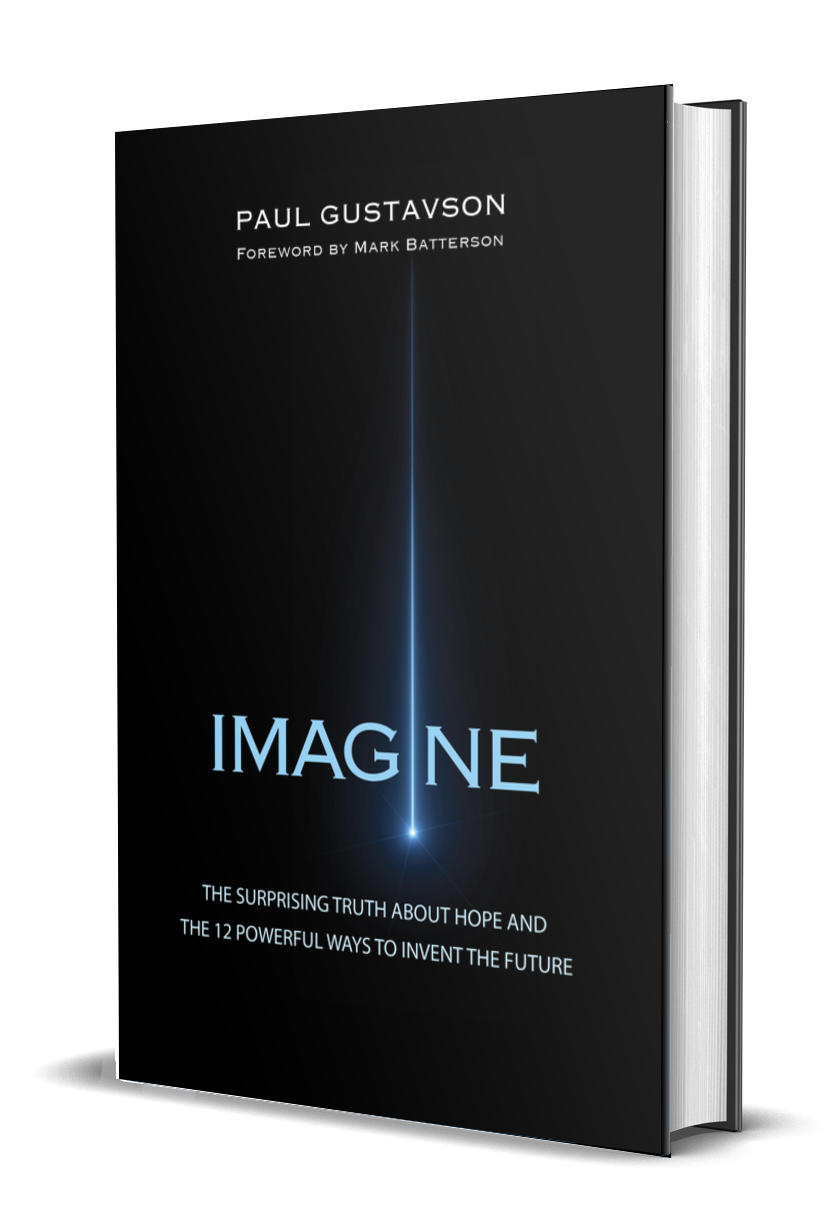The Write Mindset - How To Write a Book!

In this blog I share on why I write and something helpful for writing that I call "The Write Mindset." If you want to be a better writer -- or just have more clarity on what you do as a leader -- or maybe even write a book one day -- I encourage to consider the ideas shared in the short blog. They have made a difference in my life, and I have a feeling they might have an impact for you too. Enjoy!
I have a new book that I am excited to share that will be released on Tuesday – Dec 20th. It’s titled IMAGINE, a book about hope and this powerful tool we have upstairs called imagination.

Imagination, to me, is like our own personal multiverse. It lets us see endless what-if possibilities. It can also take us back in time or even forward in time. And in the present, we use it as an instrument to make decisions. It’s driven by primarily two things hope and fear. The key to making imagination work is recognizing both your hopes and those fears. This new book gives you some strategies and is full of stories, plus some science. I hope you love it. But what I want to talk about, isn't the book so much, but the process of writing one.
Why I write?
The question was asked of me recently on why I write? I write because it compels me to be better -- better in my job, better in my personal life, better in leading and adding value to others. But most importantly I write because I value the alignment it gives me.
When I write, my thoughts come alive, and I see things more clearly.
For example, consider why I wrote the book IMAGINE.
I had contemplated this book for years. It wasn't until COVID happened that I knew i needed to write about hope and the powers of imagination. I wanted to get grounded not on the fears swirling around me, but the hope that I knew was inside me.
Writing a book like IMAGINE was both easy and hard to write.
It was easy because I have been fascinated with the powers of our imagination since I was 13. I share more about that backstory in the opening pages of Chapter 1 of the book. When you love a topic it’s easier to write about it.
I say it was also hard because I wanted to dig into the science. I wanted to understand how we work biologically and map it in a way that didn’t require a medical degree. Over the last three years, I dug into the research, and I wanted to find other stories besides my own that gave us a glimpse of how our imagination works. There’s still so much we’re learning about how imagination and hope, but I am pleased with how this project turned out.
Is it a perfect book? Heck no, definitely not. What book is? But when you write to get your mind "set", I think you produce something of value that can lift up others too. That to me is the Write Mindset.
The book IMAGINE resulted in something that should be enjoyable to read coupled with a message that needs to be shared. People need hope. They need to know life has even more to offer, and our imagination gives us a preview of what can be! I write because I want to encourage other people! But it starts because I want to encourage myself.
How I write?
There's one more piece that I should cover, and that's my process for writing. To keep it simple, I think the process is fairly straight forward. I write to get clear on an idea.
It usually starts with just a blank page. Often it's in Word, but my best work can be pen and paper and no internet (less distractions).
Either way, I tend to use something called the Socratic method, which is a series of questions to guide how I write.
1 - What SUBJECT is on my mind?
It's a fairly benign question, but it's an important one. When I ask this question, invariably something comes up. Let's say it's writing or imagination or overcoming conflict . This question as a prompt that will open everything up. If I don't get to what's really on my mind, I am not going to write something that's impactful.
2 - What do I want to say (or ask) about the subject? What am I feeling or believing about it?
With this second question I just write what comes to mind and then I reflect on those thoughts. I can only write from my perspective, so I need to write in that regard. I need to be transparent with myself. It's actually easier to do this, than jump on Google and dig for thoughts from other people and try to articulate on a subject. Write to what you feel or believe so that you are at least cognizant of your potential biases.. Then, when you hit a pause in your writing, go to the next question (not Google). But recognized, you may come back to this question again later.
Understand why it's important to be open, We see the world not as it is, but as we are. This question, gets me to admit my perspective, my beliefs, and even my potential myths that need to be challenged. The most authoritative person on this planet about how YOU feel about the subject is you. So write what you feel. There will be a time to challenge yourself later, and steer the ship.
3 - What experience or memory comes to mind that reflects my belief or thought.
Sometimes I may remember an experience - or think of someone I know (or someone historical) that exemplifies the thought or feeling I have. What I need to look for are patterns where the story reflects the perspective. I then take a minute or two to capture that thought as a "story brief." This part is super important in helping lock in the idea. The story brief is what makes it compelling and gets us to the next important part. The lightbulb moment!
4 - What takeaways are there from the story that is relevant and might provide guidance and direction?
I might have 2 or 3 thoughts from one story brief -- if it's a good one. This is the part where I am evaluating the experience, where it's either my experience or someone else's. I recommend not going more than 3 takeaways from any one story. The key is to keep in simple. With this question, I am trying to reveal elements of a pattern. Patterns are something that we see as something that is often repeated. Patterns leave clues to how to live. What I'm looking for in these patterns are triggers, beliefs, and behaviors. The takeaway is usually a reflection of a cause and affect element of a pattern. For example, let's say the takeaway is "Write to get Clarity". Here the affect of writing is the cause for getting clarity.
5 - Why do these takeaways matter?
The next question is really critical, this is the "so that" component that can be easily missed. If I just identify the takeaways and don't get clear on the reason why the takeaway might be important, then tts going to be forgotten or dismissed. If there's no Why then there's no Way.
The differentiation for any story (and any subject)- is not just the takeaways, but the why behind it. Understanding motive and the reason behind a cause and affect helps lock it in. It makes you smarter!
For example, In this blog I have shared a core takeaway about the "Write Mindset" which is to "write to get clear". But the why behind that statement may be even more significant.
- Write to get clarity so that you can have greater understanding and confidence in leading yourself in others.
- Write to get clarity so that you know what you're talking about.
- Write to get clarity so that you can help others.
The why question may lead you to do some research. Google is now permitted, but only now.
Validate your takeaway through investigating some of the research and science that goes with it. This may be where you discover a misnomer, where you find that what you thought or felt, was out of alignment. That's okay. It's going to happen from time to time. Learning only happens when an old thought is replaced with a new one. You are expanding your awareness.
The google play -- researching and digging to get more facts and information -- helps you understand the truth.
To help give you grace on the learning, inject this thought in your writing.
I once once thought that ______________, but now I now I think _________________.
6 - What action will I commit with this new awareness?
This last question may be the holy grail. We can know a subject, we can know what we think of it, and we can even know why it matters, but if we don't layout a next step action from what we've learned, then we haven't learned anything at all.
When you write, put down the action that you know can make a difference. It helps validate the story, and active the mind. This is an important element of the Write Mindset.
Final Recommendations
I wanted to keep this simple. The most important step of all steps in writing is to just write. If you just allocate a 20 to 30 minutes to write, you'll be amazed at what you capture. My best learning isn't just from the books I read, but the words I write. I truly believe that if you can commit to writing, just a little bit every day, then it won't be long before you find yourself with a book you can publish!
Enjoy Writing!
For more on the book IMAGINE. Here are a few links to access the book
Stay connected!
Join our mailing list to receive the latest news and updates from our team. You'r information will not be shared.
